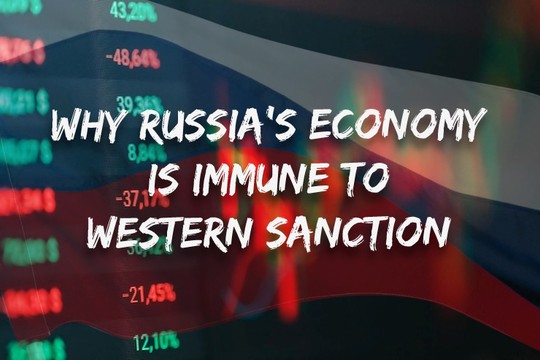Two years ago, the Western alliance rallied to both support Ukraine and isolate Russia. Two years on, though, things look very different. The Russian economy suffered a shallower recession than expected in 2022, and last year it bounced back. Whereas Western countries, in particular West European countries such as Germany that had depended on Russian energy imports, are floundering, Russia’s economic growth rate now rivals that of the U.S., writes John Rapley, an international author and academic who divides his time among London, Johannesburg and Ottawa at ‘The Globe and Mail’.
Meanwhile, far from being hobbled, its defence industry has managed to expand significantly. The country now produces three million artillery shells a year, almost three times the combined output of U.S. and European factories. Each day on the battlefield, it fires five times the number of shells as Ukraine.
It goes without saying that reports of Russia’s economic demise proved premature. Several factors account for the country’s surprising resilience.
First off, it put itself on a war footing. Defence spending shot up, such that over 7 per cent of the country’s economy is now committed to defence. This boost in demand, coupled with the fact that Russia is not directly affected by the war – Western allies insist Ukraine not use their weapons to target Russia directly, for fear of widening the war – has jolted the economy back to life.
Second, it found inventive ways around sanctions. After Western countries stopped exporting the computer chips used in modern weaponry, Russia started importing non-prohibited items, such as refrigerators, microwaves and dishwashers, then cannibalizing them for chips. Equally, it has maintained shipping by operating through shell companies that find ports willing to turn a blind eye, and has thereby maintained its trade. For many intermediary countries, especially in the developing world, sanctions-busting has become morally easier to justify since the outbreak of the Gaza war, given what they see as Western double-standards on who should be sanctioned.
Third, Russia found new markets for its exports. When Western countries cut their imports of Russian oil and natural gas, countries such as India and China happily stepped in to mop up supply. Admittedly, they did so at a cost to Russia, buying the products at a discount to the world price in such a way that they could observe the letter if not the spirit of the sanctions. India’s Energy Minister was thus able to recently say with a straight face that “the world is grateful to India for buying Russian oil,” since it has kept down oil prices on the world market.
Fourth, European countries softened the impact of sanctions on their own economies by trading with Russia through the backdoor. Western Europe’s trade with countries in Central Asia and the South Caucasus has taken off – German car sales to Kyrgyzstan suddenly rising some 5,500 per cent in one year, while Kazakhstan’s exports of electronic equipment to Russia increased 18-fold in the same period. It’s pretty clear what’s going on: European countries are trading with Russia through intermediaries.
read more in our Telegram-channel https://t.me/The_International_Affairs

 13:58 04.04.2024 •
13:58 04.04.2024 •























